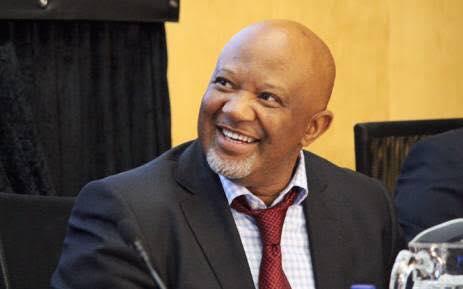Jonas in 2016 gave evidence to Thuli Madonsela that implicated former president Jacob Zuma’s son Duduzane, and the fugitive Gupta family.
The commission of inquiry into state capture adjourned today and will resume with second witness, former deputy finance minister Mcebisi Jonas giving evidence on Friday.
Jonas gave evidence to former public protector Thuli Madonsela that implicated former president Jacob Zuma’s son Duduzane, and the fugitive Gupta family in 2016. He alleged that the Gupta brothers, Ajay and Atul, tried to coerce him in 2015 to accept the finance minister post in exchange of a R600 million bribe to replace Nhlanhla Nene, before he was fired by Zuma.
Ajay denied the bribery allegation, but confirmed that a meeting with Jonas did take place at the family’s infamous Saxonwold compound in Johannesburg.
The second day of the inquiry saw acting chief procurement officer at National Treasury William Mathebula outlining procurement prescripts that underpin tender procurement at government entities. His testimony was a technical one to give overall context and not meant to implicate anyone.
Mathebula told commission chairperson Deputy Chief Justice Raymond Zondo that although his department has an oversight role on government procurement matters through his office, fraud and corruption persists.
The State procures R800 billion in goods and services annually, Mathebula said.
While State procurement processes makes provision for deviations of the tender process under certain strict rules, this has resulted in officials abusing the system in “unintended consequences” and costing the State hundreds of millions of rands, he said.
Accounting officers at entities, including local government and at municipalities, were accountable for managing procurement as governed by legislation such as the Public Finance Management Act (PFMA), the Municipal Finance Management Act (MFMA) and Preferential Procurement Policy Framework Act (PPPFA) as well as various enacted regulations and supply chain management guidelines.
Mathebula said all these legislation was underpinned by Section 217 of the constitution, which defines the manner in which organs of state must secure goods and services. Treasury also relied on reports from the Auditor General to identify problems leading to irregularities in the tender process, he said.
Zondo inquired whether the tender system can be changed to counter fraud and corruption, and questioned the identity of tender adjudication members being kept secret.
”I do not know how tenders work, but I will inquire from you as to how a bigger pool of possible members of a tender committee, say a 100 and then three others will be known at last minute? Perhaps also, appointing a retired judge to oversee process?”
Mathebula replied and said one of the instruments Treasury was looking into for tender bidding was an internal audit process at State entities.
Source: IOL
Also, read
National Arts Council chairperson Hartley Ngoato called K-word, assaulted
Family seek justice after pupil, dies in N2 taxi accident
SARS restructuring costs laid bare at inquiry

